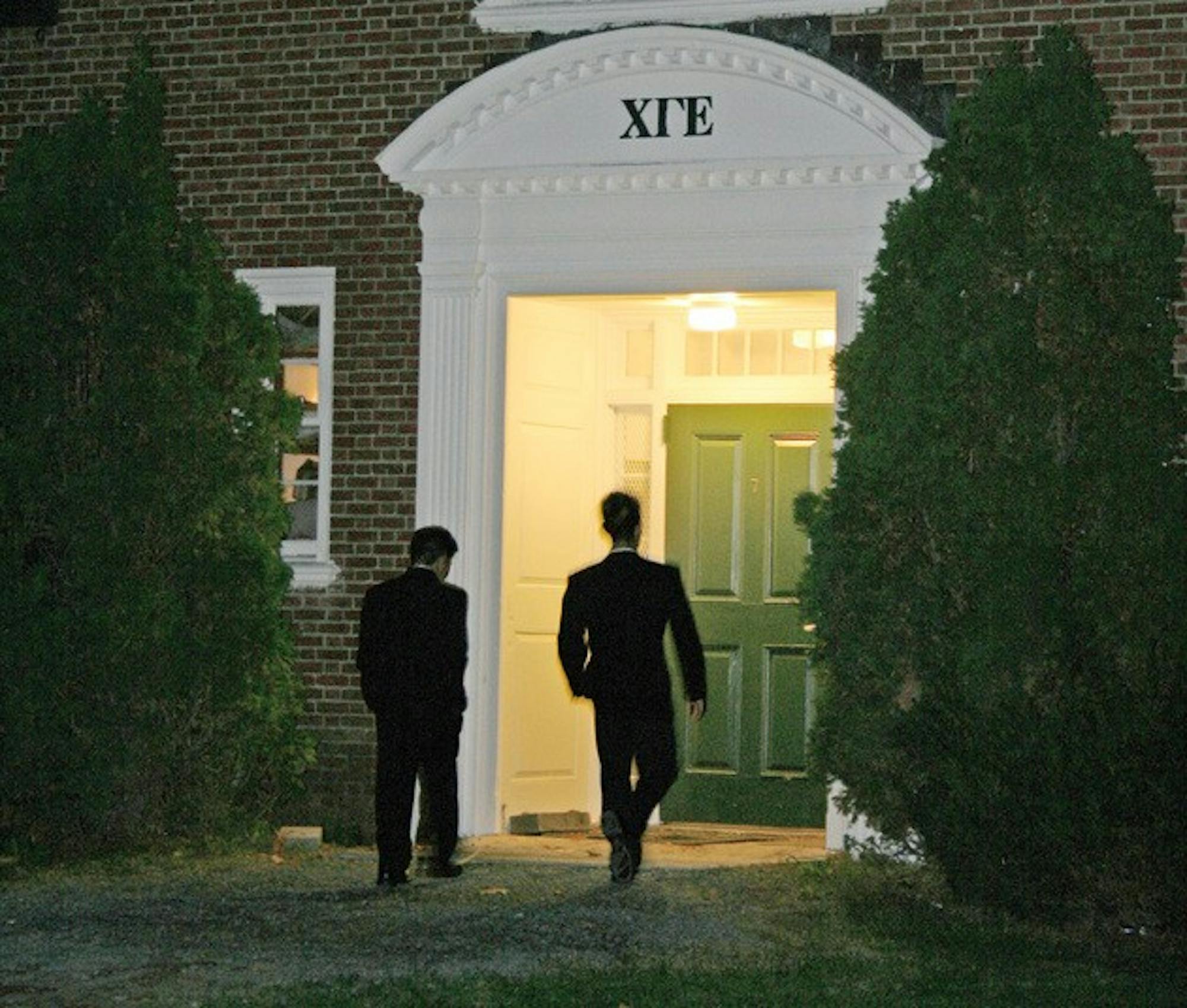With only one more night of fall rush left, Dartmouth fraternities and sororities on Monday will close out a week of wooing and welcoming members of the sophomore class. Greek leaders say that the total number of rushees appears to have increased compared to last fall's rush, following the trend of the last few years, but finalized numbers will not be available until after Monday evening's events.
Fraternities used Saturday and Sunday nights as their main selection days, but some will open again Monday to extend more bids. With most of recruitment behind them, many organizations have thus far expressed contentment with the numbers of pledges they have netted.
Andy Reynolds '09, rush chair of Sigma Alpha Epsilon fraternity, said that most of his house's decisions have been made, but that the final night of rush will be used for any final question marks.
"We just want to get to know a few guys a little better," Reynolds said.
Phi Delta Alpha fraternity had approximately 20 alumni interacting with rushees this weekend, which is a Phi Delt tradition, according to rush chair Charlie Volanakis '08. Volanakis said his fraternity had 17 men sink bids on the first night of rush and expected several more men to return to Phi Delt on Sunday night for the second round of rush.
Women's rush, which also ends Monday with Preference Night -- the third and final round of a lengthy process -- saw an increase in rushees this year, from the high 200s last year to 304 women this year. Panhellenic Council President Kate Robb '08 said the increase, which has happened every year in recent memory, can be attributed to the strength of the Greek system at Dartmouth.
"Recruitments have been going very well " I'm very happy with the numbers this fall. We hope the women are happy as well," Robb said.
Sigma Delta sorority rush chair Liz Sigler '08 said that while the increase in rushees she saw was not drastic, it could be felt nonetheless and supplied an extra challenge in meeting and assessing prospective new members.
"We've always prided ourselves on getting through the deliberation process pretty quickly, but we've had a tough time finding a balance between that and getting to know people as well as possible," said Sigler.
Some fraternities also felt an increase in rushees, which for some houses was a welcomed challenge. With approximately 60 men stopping by, SAE saw an increase in rushees and was unable to dole out bids too freely, Reynolds explained. "We weren't particularly generous and we wanted to be careful," Reynolds said. The house sunk 21 bids as of Sunday evening.
Not uncommon during the drawn-out process of sorority rush, criticisms of the female rush process have surfaced around campus. Women's rush, which began on Tuesday evening and spans five separate days with events several hours long, can be grueling compared to the fraternity rush system, which started on Saturday evening and lasts for only three consecutive nights. Robb suggested that the fraternity-dominated social scene on campus may be responsible for the difference, explaining that rush is the first time that many sophomore women are exposed to sororities.
"For women, social dynamics are more closed than they are for fraternities. The process is long and drawn-out because we have to introduce the houses," said Robb.
Sigler said that making rush a little less formal in the future would improve the process for women, although she acknowledged that the social climate on campus would have to change to see any drastic differences.
"It is what it is right now," said Sigler.




